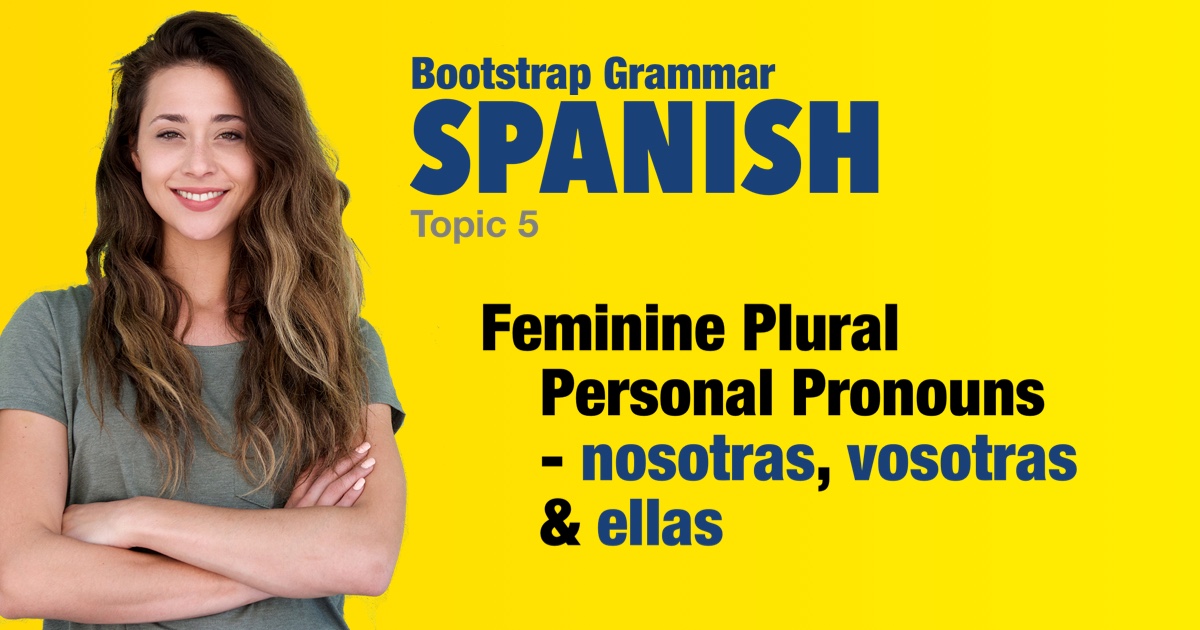Spanish grammar - Feminine Plural Personal Pronouns - nosotras, vosotras and ellas |
|||
|
|||
Spanish has both masculine and feminine forms of all the plural pronouns. The feminine plural personal pronouns are characterized by an '-as' ending: The feminine plural pronouns are: • nosotras - 'we (feminine, plural)' • vosotras - 'you (feminine, plural)' • ellas - 'they (feminine, plural)' Their estar and ser conjugations are the same as the masculine plural pronouns. Note that when there is a mix of males and females in a group, they are referred to using the masculine plural pronouns. |
| Examples: | |
|
nosotras estamos
we (feminine) are
|
|
|
vosotras estáis
you (feminine, plural) are
|
|
|
ellas están
they (feminine) are
|
|
|
Nosotras estamos aquí ahora.
We (feminine) are here now.
|
|
|
Ellas están allí ahora
They (feminine) are there now |
|
|
Vosotras estáis cerca.
You (feminine, plural) are close by. |
|
|
María y Martina están allí.
Maria and Martina are there. |
|
|
nosotras somos
we (feminine) are (permanent)
|
|
|
vosotras sois
you (feminine, plural) are (permanent)
|
|
|
ellos san
they (feminine) are (permanent)
|
|
|
Nosotras somos españolas.
We (feminine) are Spanish. |
|
|
Ellas no son estadounidenses.
They (feminine) are not American. |
|
|
Vosotras sois amables.
You (feminine, plural) are kind. |
|
|
Ellas son felices.
They (feminine) are happy. |
|
 |
|


 estar ⇒ (nosotras) estamos
estar ⇒ (nosotras) estamos
